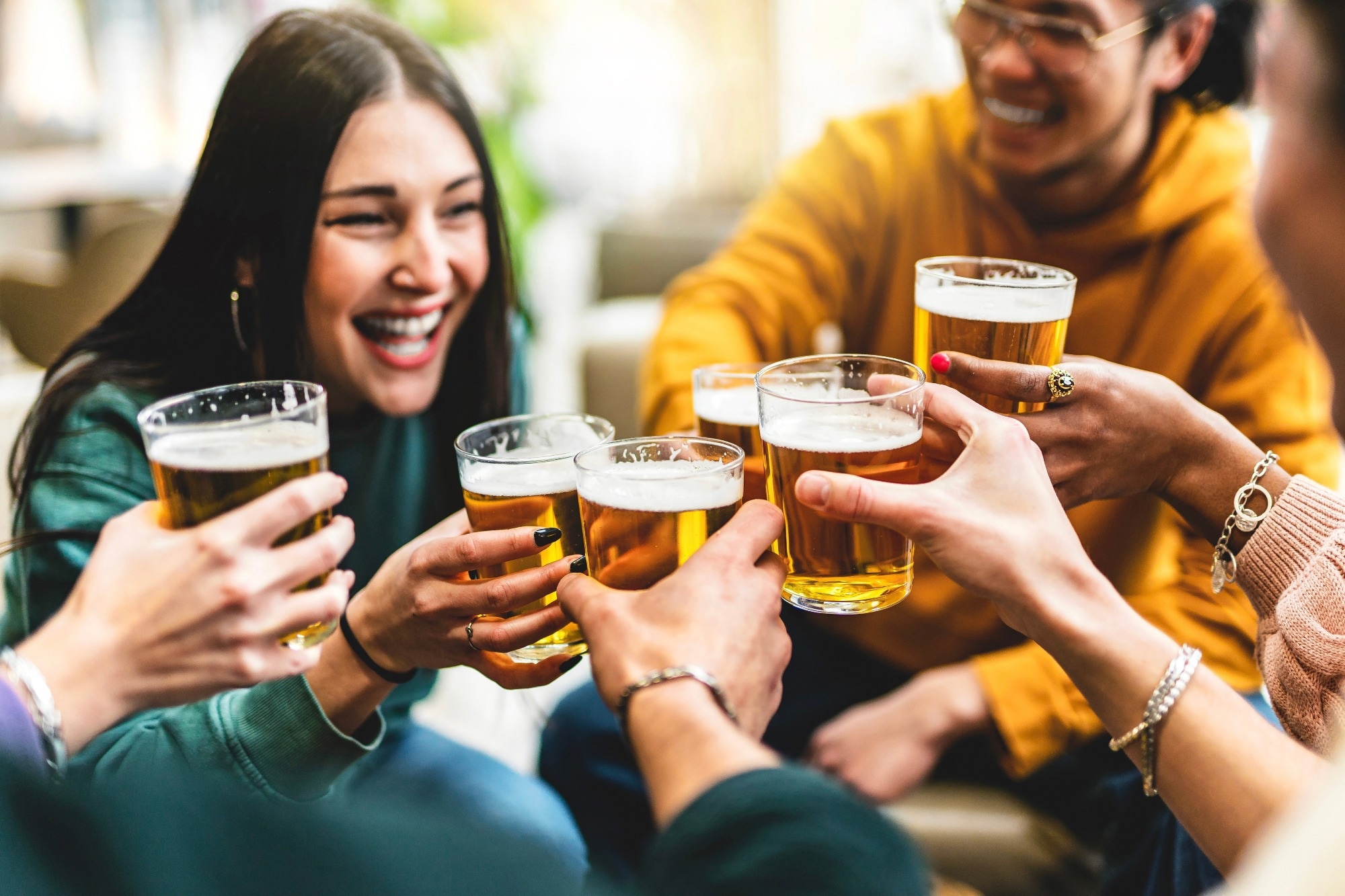New research reveals that popular GLP-1 medications like Ozempic could change how quickly alcohol affects the body, offering early clues into their surprising impact on craving, intoxication, and reward.
 Study: A preliminary study of the physiological and perceptual effects of GLP-1 receptor agonists during alcohol consumption in people with obesity. Image credit: niksdope/Shutterstock.com
Study: A preliminary study of the physiological and perceptual effects of GLP-1 receptor agonists during alcohol consumption in people with obesity. Image credit: niksdope/Shutterstock.com
In a preliminary human study published in Scientific Reports, researchers investigated whether glucagon-like peptide-1 receptor agonists (GLP-1 RAs), including semaglutide (Ozempic), could alter the body's physiological and psychological response to alcohol.
The study used data from 20 adult (21+ years) participants (July 2023 to May 2024), half of whom were administered a maintenance dose (minimum 4 weeks) of GLP-1 RAs (cases). Because this was not a randomized trial, the study compared participants already taking GLP-1 RAs with matched controls not using these drugs.
Study findings revealed that participants taking GLP-1 RAs showed a significantly delayed rise in both breath alcohol concentration and feelings of intoxication compared to a control group. These observations are consistent with a peripheral mechanism, possibly involving delayed gastric emptying, that may blunt alcohol’s immediate effects.
Introduction
Glucagon-like peptide-1 receptor agonists (GLP-1 RAs) are a class of recently developed medications that have demonstrated unprecedented efficacy in managing blood sugar and promoting weight loss. Beyond these intended uses, however, a growing body of evidence across both animal studies and patient reports suggests that GLP-1 RAs also reduce alcohol intake.
These findings have sparked intense scientific interest in understanding the mechanics underpinning these observations, with most studies aiming to establish where these drugs act primarily on the brain's reward centers, like addiction medications like naltrexone, or if they work through a more physical, peripheral mechanism in the body.
Unrelated investigations on GLP-1 RAs have shown that these drugs can slow down gastric emptying. Since alcohol is primarily absorbed in the intestine, not the stomach, slowing its absorption process could theoretically blunt its effects, making the act of alcohol consumption less rewarding.
About the study
The present study aims to address this knowledge gap, validating GLP-1 RAs' role in alcohol consumption and understanding the potential mechanisms underpinning these interactions. It conducted a preliminary observational study investigating data from 20 adult participants (age = 21 or older) with clinical diagnoses of obesity.
The included participant cohort was split into two groups: An experimental group of 10 people on a stable maintenance dose of a GLP-1 RA medication (like semaglutide or tirzepatide) for weight loss, and a control group of 10 people not taking such drugs.
The study experiment comprised a single session at a controlled "Research Bar" wherein each participant was provided a carefully calculated dose of alcohol designed to achieve a target blood alcohol level. Over the following 60 minutes, the research team repeatedly measured participants' breath alcohol concentration (BrAC) with a breathalyzer and asked them to rate their perceived level of intoxication on a simple scale.
Measures of blood glucose and nausea were also taken before and during the session, and statistical analyses (linear mixed-effects models utilizing the lme4 package) were performed to clarify between-group differences (cases versus controls).
Study findings
The present study results revealed a significant delay in alcohol's effects in cases compared to controls. Specifically, the former cohort's BrAC levels rose much more slowly than in the control group, with observed between-group differences being most pronounced in the first 20 minutes.
Following only 20 minutes of alcohol consumption, the control group's average BrAC was more than double that of the GLP-1 RA group (0.037 g/dL vs. 0.017 g/dL, p = 0.001). The overall cumulative alcohol exposure during the hour was also found to be significantly lower in the medication group (p = 0.008) when compared with their control counterparts, not taking GLP-1 medication.
Subjective participant experiences were found to mirror these objective findings, with controls consistently reporting feeling more intoxicated than participants on maintenance GLP1-RA doses. This complaint could not be explained by nausea, as both groups reported similarly low nausea levels. The study finally found that the GLP-1 RA group had significantly lower baseline alcohol cravings before the session began (p = 0.03).
Blood glucose was measured before and after alcohol consumption, but no significant group differences were observed.
Conclusions
This present study provides preliminary evidence consistent with the idea that GLP-1 RAs alter the body's response to alcohol through a potentially peripheral mechanism. Studies suggest that, by slowing gastric emptying, these drugs appear to delay alcohol's absorption into the bloodstream, which in turn blunts the initial physiological and psychological "buzz".
While the study's admittedly limited sample size and non-randomized design restrict its generalizability to the larger human population, it provides a crucial foundation and a plausible mechanism for prior observations linking GLP1-RAs to improved alcohol outcomes, including reduced cravings. These results strongly support the need for larger, randomized clinical trials to confirm these effects and explore the potential of repurposing GLP-1 RAs as a novel treatment for reducing harmful alcohol consumption.
Download your PDF copy now!
Journal reference:
- Quddos, F., Fowler, M., de Lima Bovo, A. C., Elbash, Z., Tegge, A. N., Gatchalian, K. M., Kablinger, A. S., DiFeliceantonio, A. G., & Bickel, W. K. (2025). A preliminary study of the physiological and perceptual effects of GLP-1 receptor agonists during alcohol consumption in people with obesity. Scientific Reports, 15(1). DOI – 10.1038/s41598-025-17927-w. https://www.nature.com/articles/s41598-025-17927-w